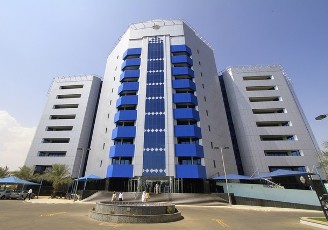Sudan makes a last ditch attempt to redeem currency
November 22, 2010 (KHARTOUM) – Sudan’s central bank issued a directive on Monday authorizing the foreign exchange bureaus and banks to buy forex at a premium which analysts said effectively amounts to a currency devaluation.
 “In order to encourage attracting the sources of foreign exchange so that it is bought in the official market at remunerative prices for sellers, the new controls [now] include a stimulation mechanism for anyone who sells foreign currency to banks and foreign exchange firms, whether from export proceeds or from other sources,” the central bank said today.
“In order to encourage attracting the sources of foreign exchange so that it is bought in the official market at remunerative prices for sellers, the new controls [now] include a stimulation mechanism for anyone who sells foreign currency to banks and foreign exchange firms, whether from export proceeds or from other sources,” the central bank said today.
The top financial authority in the country said that it will determine the premium that banks and forex bureaus will use to add on top of each bank’s own exchange rate. It will be initially set at 16.29% until further notice.
Sudan runs a so-called managed float system, in which the central bank calculates an indicative rate based on previous day transactions and intervenes on the market if quotes break away from a plus/minus 3 percent corridor around that rate.
However, in recent months the market experienced a severe shortage in foreign currency prompting the central bank to impose a series of restrictions including a cap on how much people can buy in Forex and requiring documentation to prove a need for it such as traveling abroad for medication, tourism and attending school.
The central bank has failed to inject enough forex into the market last month to bring the price on the black market in line with the official one. The Sudanese finance and national economy minister introduced a set of measures last September that bans certain imports while increasing tax and duties on others to reduce the outflow of hard currency.
Banks were also ordered to require 100 percent coverage for any letters of credit to import goods. But small to mid-level businessmen, who have profited from import-driven growth over the past few years, say this could bankrupt them. Sudanese businessmen said they are unable to obtain foreign currency other than in the black market where the price for the U.S. dollar and euro has soared.
The lack of foreign currency was attributed to “unfounded speculation” over the risk of a return to war and an economic shock ahead of the referendum, which analysts expect will result in independence for oil-producing south Sudan.
That has led to capital flight and prompted Sudanese to horde foreign currency forcing the central bank to use its limited reserves to control the exchange rate.
Bloomberg reported that one U.S. dollar could buy 2.85 Sudanese pounds on the black market today, while the official exchange rate was 2.4, according to the bank’s website.
A 16.29 percent premium over the upper limit would equal 2.9 Sudanese pounds which would bring equilibrium between the official and unofficial rates in the market.
“It seems to be saying that they won’t defend the indicative rate in the short term but they are hoping that after the referendum the risk premium will come back down and they can change this measure and come back down towards the indicative rate,” Justin Alexander at the Economist Intelligence Unit told Reuters.
“It seems to be an admission that the black market rate is a fair market rate,” Alexander said.
Central Bank Governor Sabir Hassan declined Oct. 26 to disclose a figure for Sudan’s foreign currency reserves. They stood at $1.1 billion in March, according to data compiled by Bloomberg. The Sudanese economy relies on foreign investment, mostly from Persian Gulf countries, and sales of crude oil.
From today, Sudanese banks are also allowed to offer foreign-currency accounts that can be used for deposits from inside the country, abolishing a condition under which such accounts could only be approved if they relied on transfers from abroad, the bank said in the statement.
The accounts must have a starting balance of at least 5,000 Euros ($6,860) and proof must be provided that there are “continuous money inflows” into them. Unlimited transfers abroad will be permitted, provided they meet the country’s legal requirements against money laundering and funding terrorism, the bank said.
In a report released last August, the International Monetary Fund (IMF) stressed the urgency of rebuilding Sudan’s sharply declining reserves of foreign currency and undertaking further measures to keep borrowing under control.
The IMF report showed a sharp decline in reserves held by the Sudan central bank from $1.58 billion in 2006 to $390 million in 2009 which is estimated to cover a little over two weeks of imports.
(ST)

Bol Bol
Sudan makes a last ditch attempt to redeem currency
The well-off individuals are sensing the potential collapse of government comes next year and start to buy foreign money and stashed them away in every opportunity they get. Regardless of what this thuggish government does, they will never bring public confidence back unless the political climates in the country stabilized and things return to normalcy.